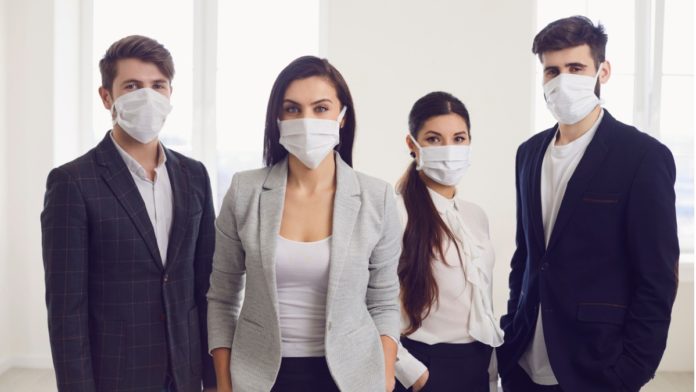
Equipping employers for the reopened workspace is becoming a specialty unto itself. Technology firms, including a number of HR solutions providers, as well as consultants and business-service firms are offering tools that do everything from track health status to plan for physical distancing.
According to the New York Times, some companies are simply rebranding existing products while others are developing completely new services. They’re taking advantage of a number of pressures: pressure to resume something like normal business, pressure to keep employees and customers safe and pressure to minimize any liability that might stem from COVID-19 infection.
Technology vendors are racing to provide apps that facilitate workplace reopening. Can they balance the need for complete data and simplicity with employee privacy? #HR #HRTech Share on XA lot of money is involved: Researcher IDC estimates that the U.S. market for contact-tracing technology alone could soon be worth $4 billion a year.
The rub is many of the solutions being introduced are based on new technologies that may or may not work, the Times said. “These are all untested theories and methods right now,” Laura Becker, an IDC research manager told the newspaper. “What is going to be the most effective component of all of these workforce return strategies? We don’t know.”
Making Workplace Reopening Safe
A number of suggestions for preventing the spread of COVID-19, such as conducting temperature checks before employees enter the workplace, present a number of challenges, HR professionals say. For example, at large facilities physical checks can result in long lines and delays, they said.
In response, some companies are developing applications that track and monitor employee health status and movements passively, without requiring action on the user’s part. Clear, which provides an identification system for airline passengers, recently introduced a system that uses facial recognition to confirm an employee’s identity and vet their self-provided health information before they enter the workplace.
To encourage social distancing, food-services firm Sodexo created an app that allows employees to pre-order and pre-pay for certain types of food. The app uses an algorithm to manage orders so there’s no crowding when customers arrive to pick theirs up.
Contact Tracing vs. Privacy
Apps that record workers’ interactions to facilitate contact-tracing are particularly popular, the Times said. One product, introduced recently by PwC, uses employee smartphones to anonymously map how workers physically connect with each other. If someone reports they’ve become infected, HR can use the product to trace contacts and inform those affected.
Another product, from software firm Microshare, equips employees with wristbands or badges that track their location and proximity to one another. Employers can also use the product to identify areas where infected workers may have gathered, so they can be isolated, shut down and cleaned.
CEO Ron Rock said Microshare’s approach can help avoid many of the concerns workers have about being tracked through their cellphones or other mobile devices. “Asking you to put something on my phone, that’s a really slippery slope,” he said. However, he acknowledges it doesn’t eliminate the issue.
“You start to come up against: Is somebody going to the bathroom too often? Is somebody going to the cafeteria too often? Is somebody smoking too much? Is somebody in parts of the building where they don’t belong?” he told the Times.
Sign up for our newsletter here.
Image: iStock













